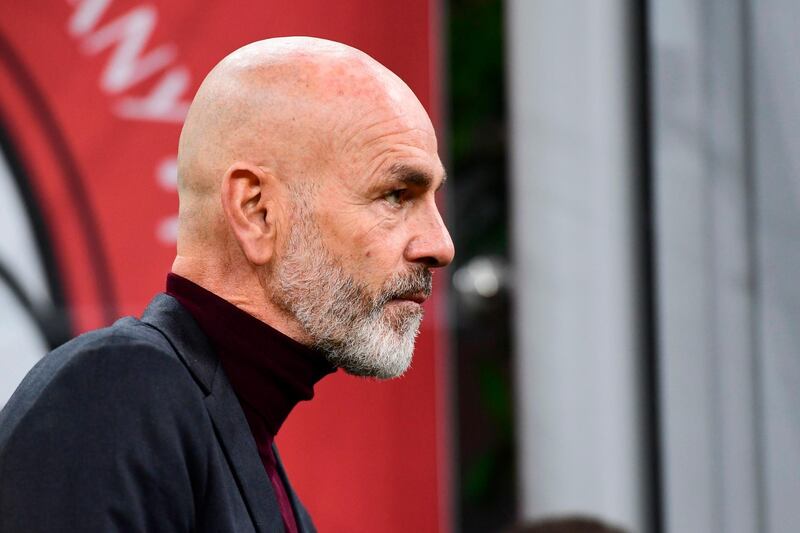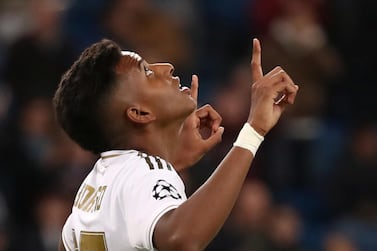Among the indignities currently endured by the Italian club with more European titles than any other is that they have to watch a temporary squatter in the place that houses so many glorious memories.
Unheralded Atalanta are playing home matches in their debut Champions League season in San Siro, raising their game to come from behind and draw with Manchester City, champions of England. These sort of nights used to be AC Milan's to host.
Inter Milan, meanwhile, will be welcoming Barcelona to San Siro next month, possibly in a must-win epic for Inter. These are the sorts of evenings that once upon a time were festooned in red and black, and the visitors entered fearfully.
But AC Milan, seven times European champions, are not in any Uefa competition this season, kept away from the Europa League – they finished fifth in Serie A 2018-19 – because of Financial Fair Play sanctions, and, reluctant though they may be to spell it out, because their football is way short of the standards of Inter’s, or Atalanta’s.
Or for that matter, of Cagliari's, Verona's or Parma's, others who sit in the top half of the Serie A table going into this weekend.
Milan are in the bottom half, having recorded their worst start to a top-flight campaign for 78 years. Yet a cruel soundtrack still keeps playing on in the background of their crisis. Executives and coaches talk again and again about “qualifying for the next Champions League”, repeating the target of a top-four finish as if the words will act as a balm.
A third different head coach within the last five months is now dangling that carrot, Stefano Pioli having replaced Marco Giampaolo, who was appointed when Rino Gattuso quit in June.
Giampaolo lasted 111 days, and won three and lost four of his seven fixtures in charge. Pioli has overseen two wins and two defeats from his first five, and can scarcely look at the calendar and believe that, by the end of November, he will have emerged as the sudden saviour: On Sunday, Milan go to Juventus and, after that, Napoli are at San Siro.
The status of Juve-Milan as the great summit meeting of Serie A has been eroding steadily. Since Milan won at Juventus in March 2011, on the way to the last of their 18 league titles, Juventus have triumphed in all but 13 of the 16 league meetings, drawing once.
Since that last away victory at Juve in Serie A, Milan have seen the landscape alter physically, too. Juventus moved to their new stadium in the last summer that AC Milan were scudetto holders: Milan have since lost on every single visit there. And Juventus have won every scudetto since they relocated the Juventus Stadium. Eight seasons, eight league titles.
It is Juve’s own home, too, which is still unusual for an Italian club – most are renters – and that control over income has been a major springboard for the economic freedom Juventus have used to consolidate their pre-eminence in Italy.
If Juve have turned uncharacteristically swashbuckling in the transfer market in the last two summers – Cristiano Ronaldo cost €100m (Dh 405m), aged 33; Matthijs de Ligt, a teenaged defender, cost €75m – they are envied for their power to make such bids. Milan, mere tenants at San Siro, recorded combined losses of over €270m for the last two seasons.
“We inherited a club on the verge of bankruptcy,” chief-executive Ivan Gazidis told supporters last month, a year into his job at a club that has since 2017 passed from the bullish, often reckless but trophy-rich presidency of Silvio Berlusconi, to Yonghong Li, a Chinese investor, and briskly onto the American investment vehicle, Elliott Management. “That bankruptcy could have meant being demoted into Serie D.”
Gazidis offered that stark reality-check as an explanation of why Milan are no longer chasing superstars in the transfer market.
Or, if they are, they are stars of a certain vintage. Part of the frisson generated by the story of a possible January return to the club of 38-year-old Zlatan Ibrahimovic is down to the callow look of the present team.
“They have no personality,” Milan's former manager Fabio Capello told Radio Anch’io after last weekend’s 2-1 home defeat to Lazio, the Rome club’s first victory at Milan for 30 years, and a loss to complete the set: Milan, still talking up the idea of a top four finish, have now lost to second-placed Inter, third-placed Roma and fourth-placed Lazio already this season.
Juventus, the league-leaders, sit a point clear of Inter, and 16 points above Milan. Sunday looks especially daunting for a side that, according to Capello, “are playing with fear, without a leader. They are in trouble.”







